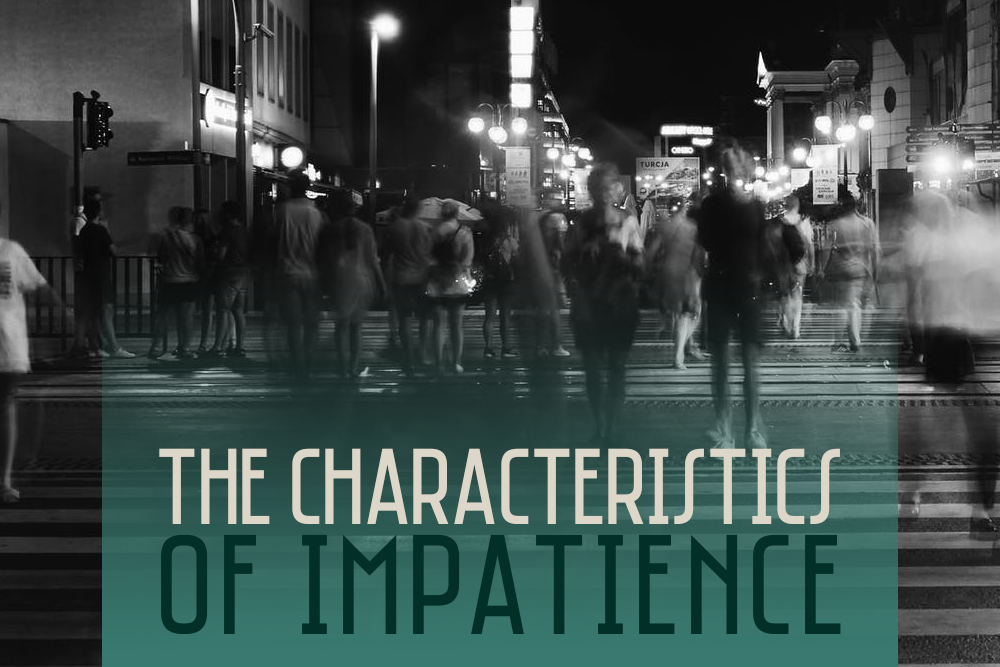Ready for a pop-quiz? Here is a quick self-test to check for signs of impatience.
Response | Characteristics of Impatience |
| Question #1 | Longsuffering: When provoked, do I rashly respond to the degree that I am later sorry? Endurance: Do I call divine providence into serious question?
|
| Question #2 | Longsuffering: Am I vexed within when things don’t go the way I think they should go? Endurance: Are there times that I feel I could do a better job than God?
|
| Question #3 | Longsuffering: Do I constantly see the negative side of people and think they’ll never change? Endurance: Is my spiritual life lived through the past, because those “were better days”?
|
A “true” response to any of these characteristics of impatience could mean that impatience is overcoming patience and ephemeralness is challenging endurance, all of which are addressed by the Preacher in Ecclesiastes 7:8-10:
“Better is the end of a thing than its beginning, and the patient in spirit is better than the proud in spirit.”
Question 1
A positive response here connects impatience with pride as seen in the Scripture. A proud and conceited person will treat people with contempt and does not weigh his words. They think that all must meet their approval and operate on their time schedule. This person is never content with the outworking of providence. They rebel against the ordained course of events.
Pride of spirit, though flamboyant and dramatic, cannot sustain a person through difficult times.
Question 2
“Be not quick in your spirit to become angry, for anger lodges in the bosom of fools”
(Ecclesiastes 7:9 ESV).
Answering ‘true’ to this question can lead to a life of skepticism where doubt overshadows belief. “Impatience and unbelief usually go together, just as faith and patience do” (Wiersbe).
Question 3
“Say not, ‘Why were the former days better than these?’ For it is not from wisdom that you ask this”
(Ecclesiastes 7:10 ESV).
Embracing question three can reflect one of the most common characteristics of impatience: negativism. By asking such a question about the past, the impatient person shows that he had not reflected wisely on the matter: “For you do not inquire wisely concerning this.”
Every age has its light and dark side. The ‘good old days’ were not always so good, and the present is not so bad. The Israelites who yearned for the onions, garlic and meat of Egypt had blotted from their memories the bondage, toil and misery (cf. Numbers 11:5).
Difficult times call for believers to look forward to the Promised Land, not back to Egypt. The future ultimately will be better than any past or any present, however good.
How did you score?



